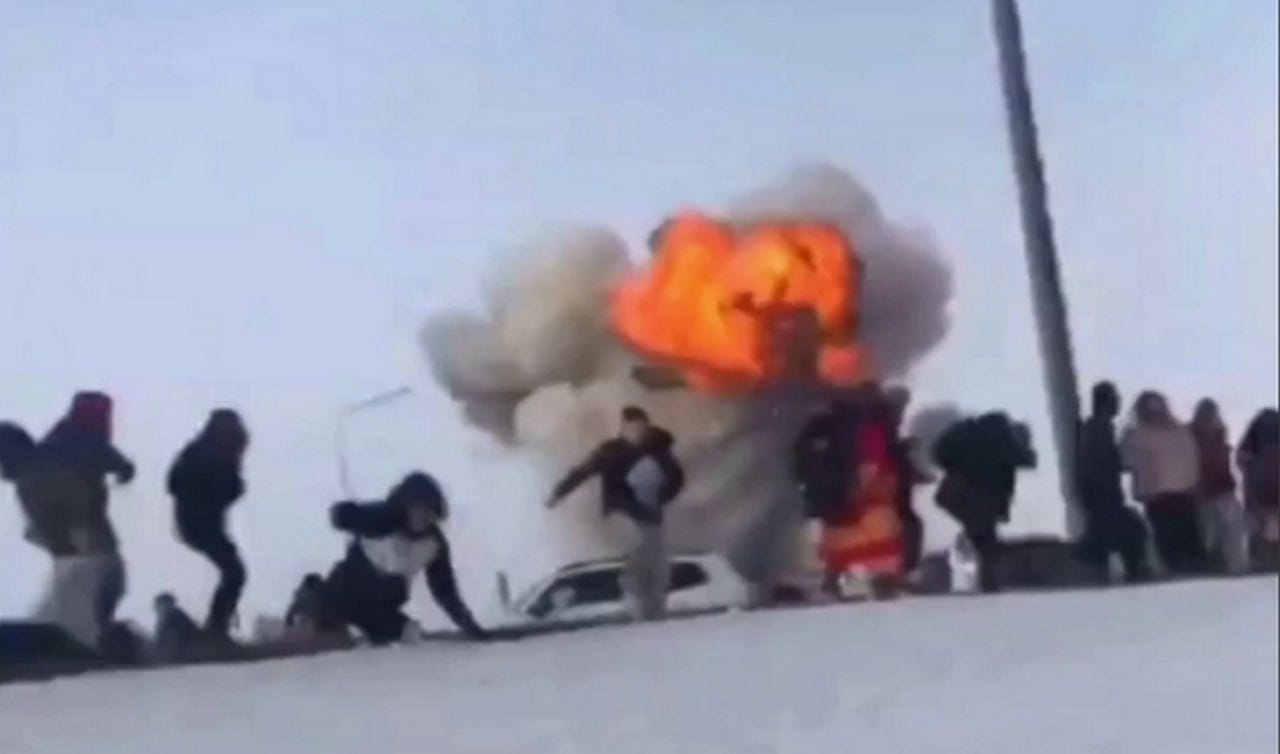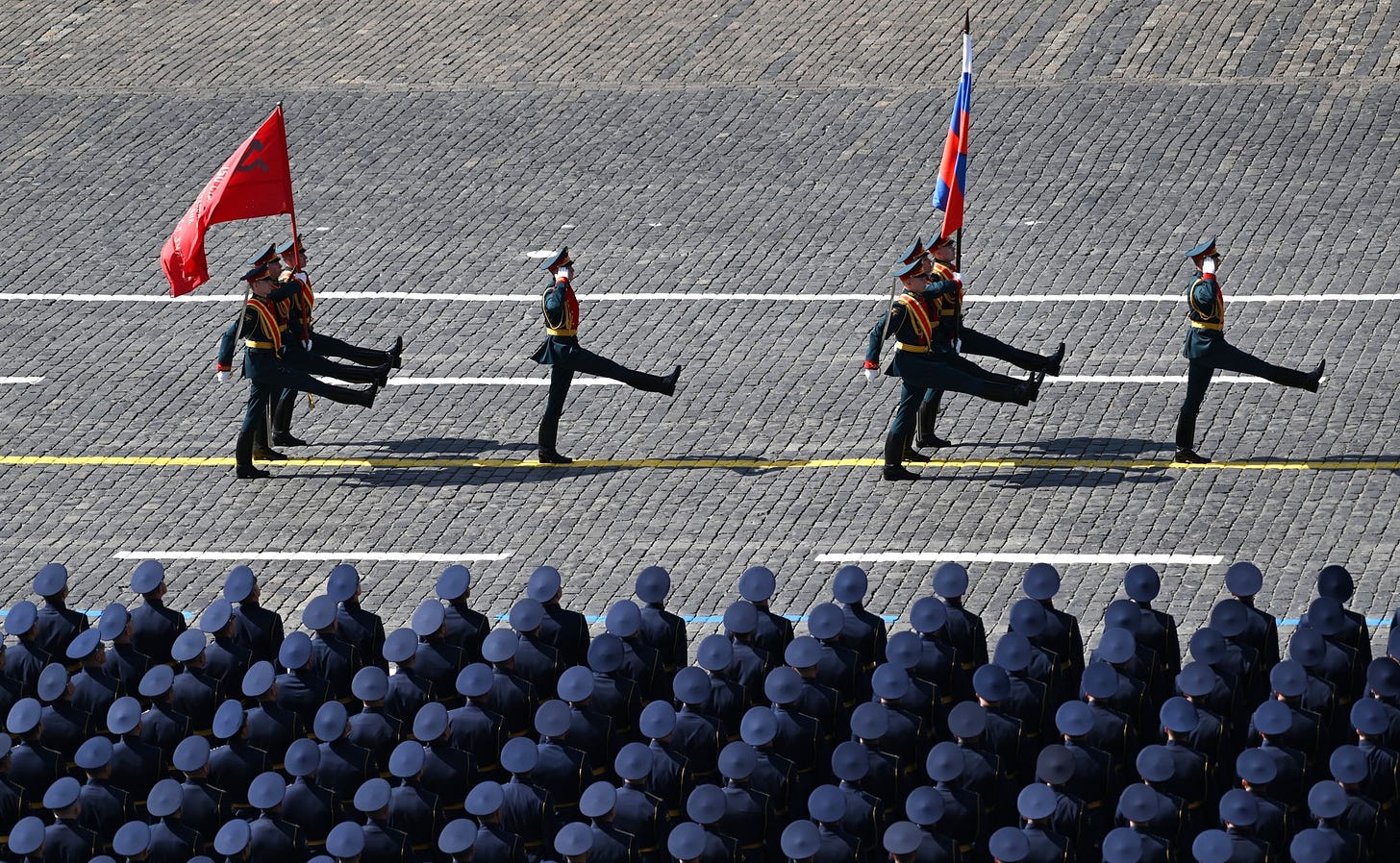Stabs in the back
Russian accusations of Central Asian treachery over the war in Ukraine used to be confined to margins of the commentariat. Less so, these days.
Russian crackpottery about sinister goings-on in Central Asia has typically been the preserve of commentators on the margins.
But it is perhaps a sign of the times that there was no particular surprise when a State Duma deputy, Andrei Gurulev, suggested this week that a deadly and likely Ukrainian-launched drone strike on an industrial park in the Russian republic of Tatarstan could have been dispatched from Kazakhstan.
“Those steppe areas in the north and the northwest are practically deserted. Who knows? They are not monitored from the air or from radiolocation stations. They could do whatever they want,” Gurulev said.
Given the semi-official provenance of the charge, Kazakhstan’s Defence Ministry felt moved to issue a denial.
“Such insinuations are aimed at discrediting the Republic of Kazakhstan,” the ministry said in a statement.
Talk of Central Asian treachery and ingratitude has become common fare these days among the Russian chauvinist commentariat — known widely as Z-bloggers.
By straining to adopt as neutral a position as is feasible over Russia’s invasion of Ukraine, Kazakhstan has earned the animus of this crowd and like-minded people in regime-aligned media outlets. At times, this has taken ludicrous turns.
Earlier this year, a well-known TV presenter and executive, Tina Kandelaki, lambasted Kazakhstan over its decision to rename a number of train stations, which she cast as a slight on remnants of the country’s Russian heritage. This was the first step down a dark road that could well culminate in Russian pensioners in Kazakhstan one day being ejected from their homes into the cold night, she argued in a Telegram post.
When it was pointed out to Kandelaki that she was talking nonsense, she played a now-familiar card by recalling that the Collective Security Treaty Organization, a Russian-led security body, helped Kazakhstan restore order after the shocking and violent political unrest of January 2022. The Kazakhs are spoilt ingrates, she implied.
Z-bloggers have never forgiven Kazakhstan over the time, back in March 2022, that a senior official in the administration of President Kassym-Jomart Tokayev pledged support for Ukraine’s territorial integrity and offered assurances that Astana would not work to undermine the effectiveness of Western sanctions against Russia.
“Of course, Russia wanted us to be more on their side,” the official, Timur Suleimenov, told a European journalist. “[But Kazakhstan] will not risk being placed in the same basket as Russia.”
Kazakhstan will have irritated many Russian nationalists yet again this week by once more announcing that it does not plan to hold parades for the May 9 Victory Day holiday. This date in the calendar has been elevated to a quasi-religious status in Russia, and the refusal of several fellow ex-Soviet republics to accord it the same degree of respect is seen as a show of insolence.
Another Central Asian slight — the proverbial “stab in the back” — was perceived in this week’s news that a payment card-processing system in Kyrgyzstan will no longer be working with Mir, a Russian analogue of Visa or Mastercard. The Kyrgyz were hardly in a position to do otherwise. The risk of falling prey to secondary Western sanctions has compelled many banks working with Mir to reconsider their options.
One Z-blogger with more than 250,000 subscribers, DONTSTOPWAR, suggested that Kyrgyz expatriates in Russia should be sent home until “their government decides which chair they want to sit on.”
This is hardly fair. Kyrgyzstan has studiously avoided criticizing Moscow and, in fact, has served as a useful conduit for the delivery to Russia of hotly sought-after commodities like automobiles and electronics.
The author of another popular war-themed Telegram account, Voenkor Kotyonok, complained that the Mir decision makes a mockery of the fact that Kyrgyzstan is a member of the Russian-led Eurasian Economic Union trading bloc.
There has been a more toxic strain of anti-Central Asian xenophobia following last month’s Crocus City Hall massacre, which Russian authorities have said was perpetrated by a group of four Tajik nationals.
That was perhaps to be expected — and there are unmistakable echoes with the countless instances of intolerance directed at vaguely dark-skinned people in the United States in the aftermath of 9/11 — but it probably does not help when powerful public figures like Nikolai Patrushev, the secretary of Russia’s Security Council, suggest that Ukraine is actively recruiting Tajik nationals to join the ranks of its international legions.
The implication that Central Asians are not just failing to fully support Russia’s war, but that they might covertly be aiding the enemy, is a frequent refrain — and not just in Z-blogger circles.
State-run news agency RIA-Novosti last month carried a report, based on information provided by unnamed sources, claiming that Ukraine was in talks with companies in Kazakhstan on the purchase Russian-made military equipment. The report name-checked several firms based in Astana.
RIA-Novosti’s source went a step further and volunteered a political analysis.
“Perhaps the Kazakh leadership has hidden cards in its game of multi-vector politics, so as to maintain an equidistant position on the situation around Ukraine in its dialogue with both the West and Kazakhstan’s main security guarantor: Russia,” the source suggested.
Then too, Kazakhstan hotly denied the charge, noting that it had banned the export of weapons and military equipment in 2022.
Similar allegations about Uzbekistan are now floating in the ether.
This week, Rybar, an influential and seemingly well-briefed military affairs Telegram channel, cited a trove of allegedly leaked correspondence to claim that a U.S.-based company was seeking to buy Soviet-made air defense systems and multiple launch rocket systems from Tashkent. The letter cites the would-be buyer as saying that it was looking for the system on behalf of “U.S. government partners.”
Rybar concluded, without firm evidence, that the buyer was inquiring on behalf of the U.S. Department of Defense and that the partner mentioned could be none other than Ukraine. The channel added that it did not know how Uzbekistan responded to the overture.
The veracity of the correspondence, which was uploaded to a Substack page in December, has not been independently confirmed.






